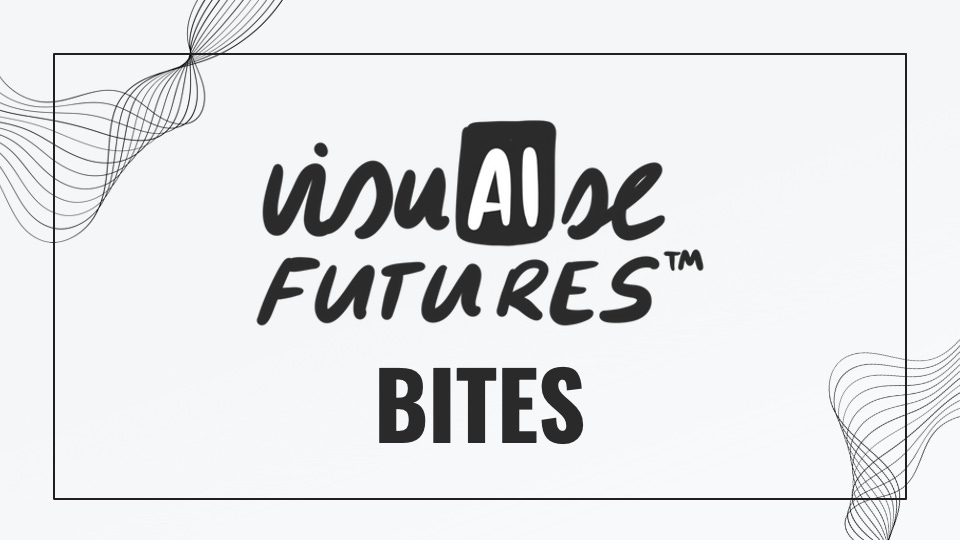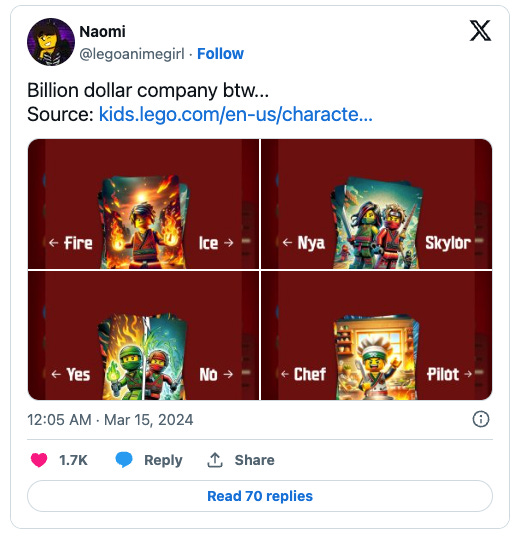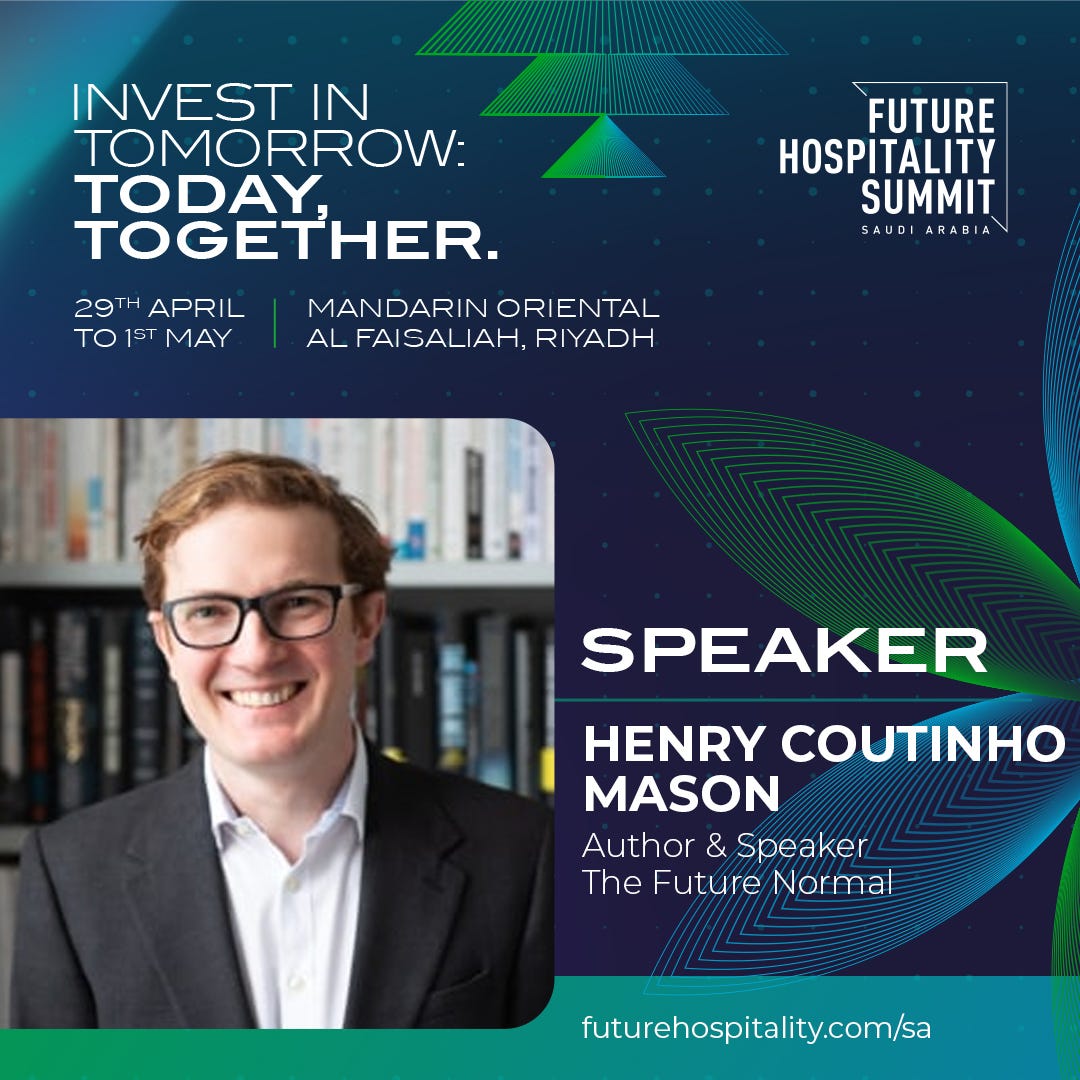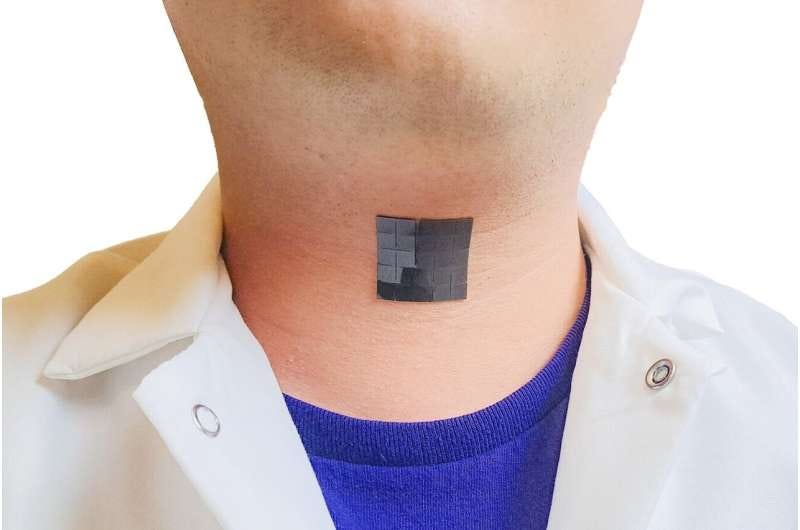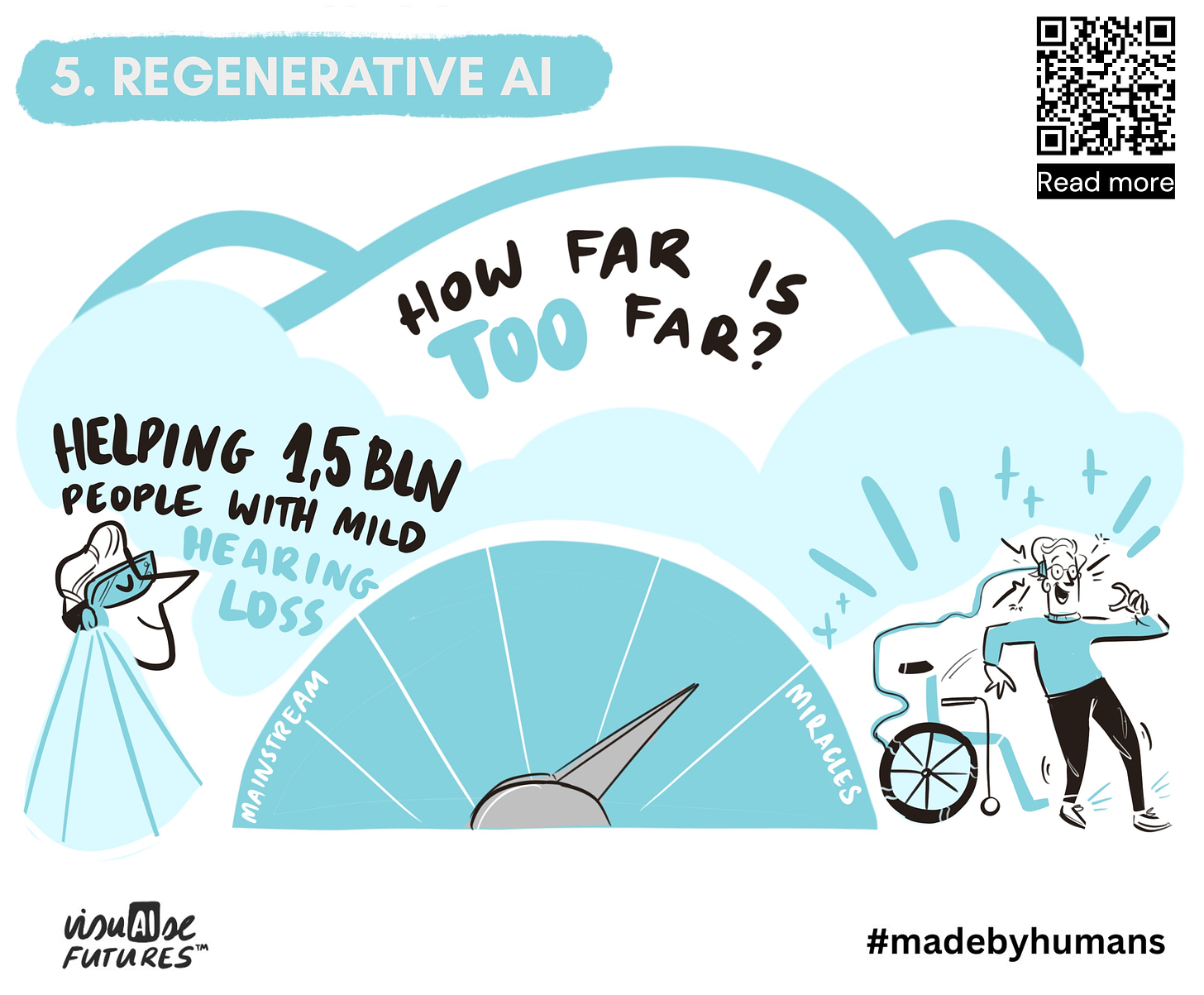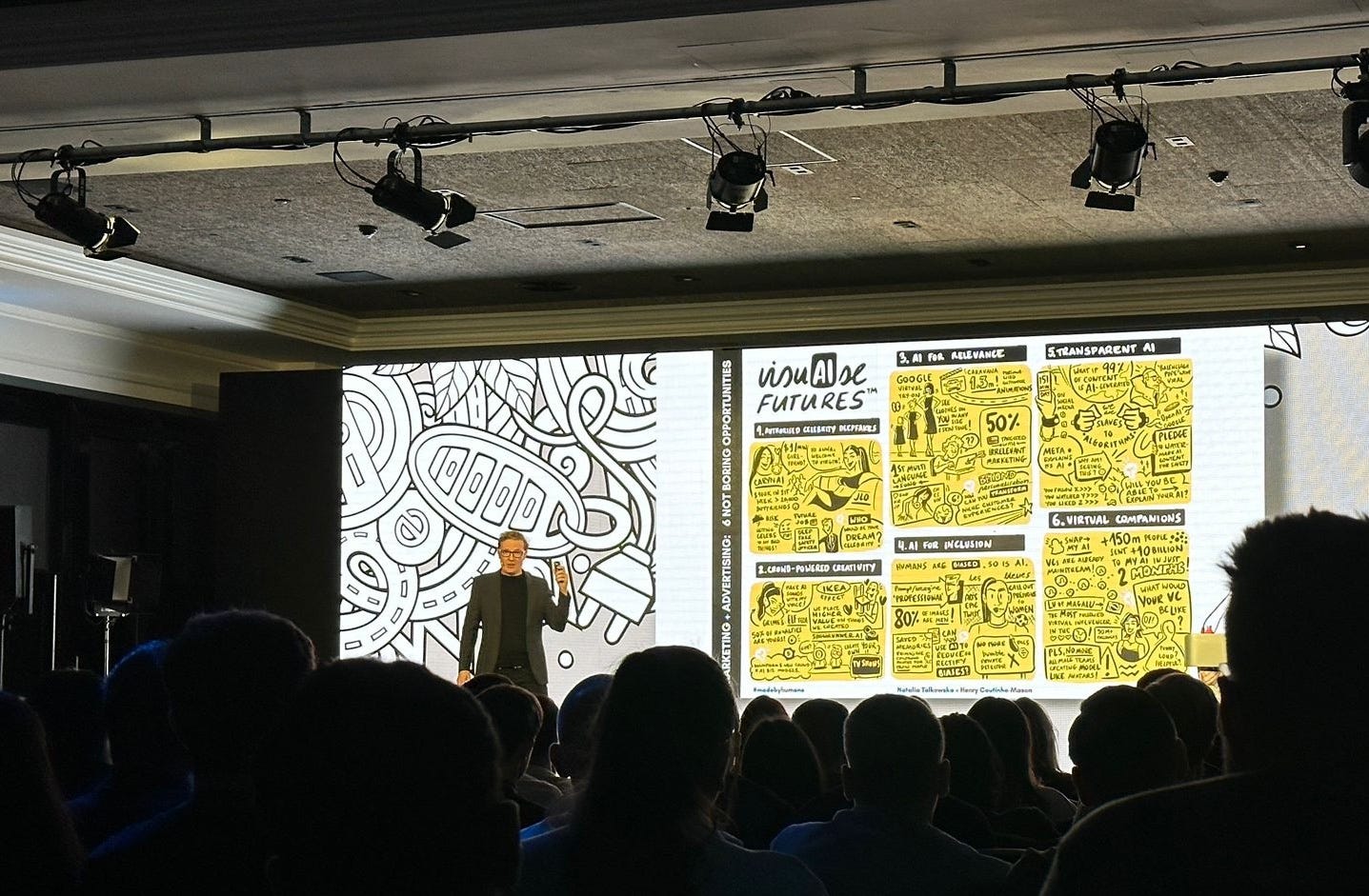Each week we go beyond the headlines and explore what AI will mean – for people, for businesses, the future of work, learning and culture, and more.
These updates will help inspire your team to see new opportunities to use AI. They’ll inspire you to ask the right questions. Most importantly, they’ll show you why putting people at the heart of your AI strategy will be the key to success.
This week, learn from:
LEGO’s AI fail and the need for transparency and alignment.
Devin’s autonomous coding bot and a future normal of work that’s “Less, But Better”
UCLA’s Regenerative AI: Speaking Without Vocal Cords
🧱 LEGO’s AI fail and the need for transparency and alignment
We’re still figuring out the ethical and cultural norms when it comes to how and where to use generative AI – as shown by this fascinating story involving LEGO.
Last week, an attentive fan noticed that the company's website featured some bizarre AI-generated images in a nonsensical quiz related to its popular Ninjago line. As you might expect, this wasn’t popular.
A few quick thoughts:
The honeymoon is well and truly over for big tech. No matter how optimistic you are about AI’s potential to improve our lives (as I am), you can’t hide from the fact that people are fearful. A gushing AI ‘sizzle reel’ was booed by audiences at SXSW.
For a brand like LEGO – who’s mission is to “Inspire and Develop the Builders of Tomorrow” – turning to AI to add to the tsunami of cheap, rushed, flawed content feels deeply inauthentic and misaligned. Transparency is everything.
I’ve also written a lot about the power of AI to unlock Crowd-Powered Creativity. But if your brand already has a strong fan / contributor community (like LEGO), then you should tread much more carefully.
AI’s very power lies in how it removes the skill required to participate, but the flip side of this is that lower effort = lower commitment. And lower skill = less prestige, at least in the eyes of existing community members.
Henry will be delivering a keynote on “Designing A People-First AI Strategy” at the Future Hospitality Summit in Riyadh on 30 April.
Interested in having a similar session for your team?
🧑🏽💻 Devin’s autonomous coding bot and a future normal of work that’s “Less, But Better”
Sam Altman recently made apocalyptic headlines (at least in the marketing press) when he was quoted as saying “95% of what marketers use agencies, strategists, and creative professionals for today will easily, nearly instantly and at almost no cost be handled by AI”.
Which made it somewhat ironic that within two weeks Cognition released its Devin, its autonomous coding bot. Devin can handle end-to-end development projects (as shown in the video above), and has even completed some real-world jobs on Upwork.
Many people’s instinctive reaction to these stories is to assume that this kind of automation will inevitably lead to huge falls in income (or outright job loss) for those currently working in those industries.
But there’s another side to this story – where autonomous agents make jobs better.
We’ve seen again and again that making things radically cheaper and more convenient expands the market. The introduction of ATMs made it more affordable to open bank branches – and for decades the industry expansion meant the number of bank tellers kept rising. Similarly, Uber didn’t just cause people to switch from taxis, it expanded the market for rides.
If coding becomes easier then many, many more people will create sites and apps. And until autonomous AI agents are able to consistently and completely (a very, very high bar) automate every task, this expansion will end up massively increasing demand for coders’ skills.
Because even if most amateurs never take their projects beyond the level of AI’s capability, some will. Imagine a world where 95% of the code in the world is written by AI. If this results a 1,000x expansion in the number of apps and websites, then the 5% share ‘left’ to human coders is a market 50 times bigger than today. And given how few people can code today (and the high cost of working with them), it’s not unreasonable to imagine that with no barriers to entry we could see a 1,000,000-fold expansion in the volume of software projects.
Just look at social media. Nearly 4 million videos are uploaded to YouTube each day. Yes, most are terrible and will never be watched. But a tiny minority are excellent, produced by the millions of people who now make their living as professional creators.
💡 Imagine your market got 1,000 times bigger, but AI did 95% of the tasks your people do today? Which tasks will be left for humans to do?
🔊 UCLA’s Regenerative AI: Speaking Without Vocal Cords
We wrote about Regenerative AI in our full VisuAIse Futures: Healthcare report saying:
“We are as gods, we might as well get good at it.”
This Stuart Brand quote captured the techno-optimism unleashed by the Space Age in the late 1960s. Now, as AI promises to unlock new technological miracles in the 21st century we should again be asking how we can use our new god-like superpowers for good.
And what could be more inspirational than using the power of AI to restore lost capabilities – making the paralyzed walk again, the blind see, and the deaf hear?
And barely a month after we published this, news comes of this innovation from UCLA – where researchers have developed a patch-like device that can help people with vocal cord disorders regain their voice.
The adhesive device detects patients’ larynx muscle movements and translates them into audible speech with nearly 95% accuracy using machine learning technology.
But the biggest takeaway from this device is how deftly it bridges the magical with the practical. Non-invasive, reusable, comfortable, lightweight, and even self-powering via muscle movement.
While still years away from mass roll out, this device should remind anyone working in the field that the physical function and form factor is as important as any algorithms, when it comes to creating patient-centred solutions.
About VisuAIse Futures
VisuAIse Futures is a graphic collaboration between 👩🎨 Natalia Talkowska and 🕵🏻♂️ Henry Coutinho-Mason – two curious humans with 20+ years collective experience of helping large organisations navigate change.
We love helping companies increase the reach and impact of their thinking, so if you want to bring us to run a workshop at your next AI event or meeting, and co-create a custom graphic for your organisation – then let’s chat!
“Inspiring, energetic, and entertaining. Henry's session for 2,000 senior executives from a Fortune 100 healthcare company received the highest rating from the attendees.” Brent Turner, SVP Head of Strategy, Cramer Events



